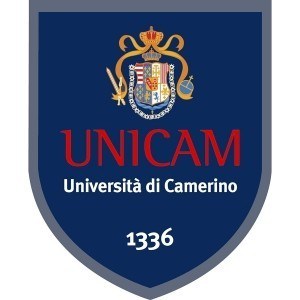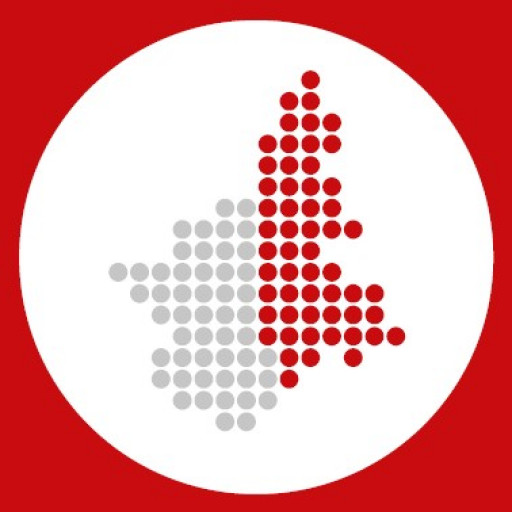Photos of university / #imperialcollege
The MSc in Systems and Synthetic Biology at Imperial College London is a cutting-edge postgraduate programme designed to equip students with a comprehensive understanding of the fundamental principles and advanced techniques in the field of biological systems engineering. This interdisciplinary course combines principles from biology, engineering, mathematics, and computer science to enable students to analyze complex biological systems and develop innovative synthetic biological solutions. Throughout the programme, students will engage in a rigorous curriculum that covers topics such as systems biology, genetic engineering, bioinformatics, metabolic modelling, and synthetic biology tools and applications. The programme emphasizes hands-on experience through laboratory work, computational modelling, and real-world project work, preparing graduates to contribute effectively to research, biotechnology, pharmaceuticals, and healthcare industries. Students will learn to design and implement synthetic biological parts, devices, and systems that can address pressing global challenges such as disease treatments, sustainable manufacturing, and environmental remediation. The course also focuses on the ethical, societal, and regulatory considerations associated with synthetic biology, fostering responsible innovation. Imperial College’s state-of-the-art facilities and close collaborations with industry partners provide students with valuable networking and employment opportunities. Graduates will be equipped with the skills to pursue careers as research scientists, bioengineers, or entrepreneurs in academia, industry, or government agencies. Overall, the MSc in Systems and Synthetic Biology at Imperial College London offers an integrative and practical education that positions students at the forefront of biological innovation and technological development in this rapidly evolving field.
The programme is only offered as a full-time, one-year course and leads to the MRes degree. Students begin their lecture programme with compulsory core courses and practicals (modules 1–5) in the first term (October–December).
In January students choose a topic for the eight-month long multidisciplinary, theoretical or experimental research project, supervised by at least two supervisors with different expertise. One supervisor may also come from industry.
During the month of January students write a research proposal (6 pages) on their chosen research project, evaluated by a student mock panel for early feedback prior submission to supervisors. During terms 2 (January-March) and 3 (April-June), a mini-conference will be offered.
MODULES
1a. Introductory courses – Essentials for Life Scientists
This short lecture course introduces the basics of modelling and theoretical analysis, tailored towards students from the life sciences with limited theoretical background. In particular, lectures will cover differential equations and stochastic simulations.
Computer practical - the programming package Matlab will be introduced. Emphasis will be put on learning by examples. Students will learn how to read data files, analyse data, fit models to data, plot graphs, print to output files, and how to implement simple dynamical models. The latter will focus on ordinary differential equations.
1b. Introductory courses – Essentials for Physical Scientists
This short lecture/tutorial course will provide an introduction to life sciences, tailored towards students from the physical sciences. Lectures will discuss aspects of molecular biology and information flow within a biological context (DNA, RNA, proteins, transcription and translation). An overview of some experimental techniques (cloning, PCR) will be provided.
In addition to the basic introduction to biology some insight will be provided into up-to-date DNA assembly methods which have applications in synthetic biology and will be of interest to students with life science backgrounds.
Hands-on experience in basic experimental techniques will be provided. The practical will explore new techniques in DNA assembly.
Module 2 – Experimental Systems Biology
Lectures will cover signalling and gene regulatory pathways and programmes in bacteria, mammalian cells and plants. Further topics of the lectures will include structural and functional genomics, and experimental techniques. Molecular medicine and genetic aspects of health and disease will be also be mentioned.
Module 3 – Theoretical Systems Biology
This lecture course will cover various modelling techniques. Specifically, lectures will cover dynamical systems, networks, deterministic differential equations, stochastic simulations, control theory, biophysics and cell mechanics, as well as statistical approaches, such as Bayesian inference.
Module 4 – Synthetic Biology
Topics of module range from biological building blocks and their characterization as, e.g. input/output relations, filters, amplifiers, robustness, as well as control theory, metabolic flux analysis, and genetic engineering. Additionally, this module will address social, ethical and policy issues, such as how is science linked to society, biology in the political context, social challenges, governance and regulation.
Module 5 – Advanced Technology
This short lecture course will cover imaging and high-throughput technologies. Imaging techniques include various forms of fluorescence microscopy, and high-throughput techniques include RNAi screens, microarrays, and microfluidic devices.
The minimum qualification for admission is normally at least an upper second class Honours degree in a physical, engineering, mathematical, or life/biomedical sciences-based subject from an UK academic institution, or an equivalent overseas qualification. A-level mathematics will generally be required for entry.
If your first degree is from a country other than the UK, you may find the guidelines within our Country Index helpful. Please note that these guidelines indicate the College minimum. Our requirement is usually higher.
A-level mathematics (or equivalent) will generally be required for entry.
The MSc in Systems and Synthetic Biology at Imperial College London offers a diverse range of financing options to support students throughout their studies. The program's tuition fees vary depending on the student’s residency status, with international students generally facing higher costs than home students from the UK. For the latest academic year, tuition fees for UK students are approximately £11,500, while international students can expect fees around £28,000. These fees are subject to annual increases and may differ slightly in subsequent years.
Imperial College London provides several funding opportunities, including scholarships, bursaries, and grants, specifically aimed at supporting students in STEM and biotechnology fields. For example, the Imperial College PhD Scholarships, although primarily for doctoral studies, can sometimes be applicable to interdisciplinary master’s programs through specific pathways or integrated PhD options. Additionally, students are encouraged to explore external funding sources, such as government-sponsored schemes like UK Research and Innovation (UKRI) funding, charities, and industry-sponsored scholarships relevant to biotechnology and synthetic biology.
The college also offers specific scholarships for international students, which can significantly reduce the financial burden. These include merit-based scholarships awarded on academic excellence and potential contribution to the university community. For students from non-UK backgrounds, the college’s International Student Funding Office provides guidance and application assistance for various funding sources, including the Imperial College Commonwealth Scholarships and Chevening Scholarships.
Students are strongly advised to consider additional financial planning, including part-time work opportunities, which are available within the university’s guidelines, to support their living costs. The cost of living in London is relatively high; therefore, students should budget for accommodation, travel, health insurance, textbooks, and personal expenses.
Imperial College also participates in the government’s Tuition Fee Loan scheme for eligible UK students, allowing them to defer payment of tuition fees until after graduation when they are earning above a certain income threshold. For international students, financing options are more limited and mainly rely on scholarships, sponsorships, and personal funds.
Overall, students are encouraged to apply early for funding opportunities, pay close attention to scholarship deadlines, and contact the college’s financial aid office for personalized advice. While the program itself does not provide direct financial aid, the extensive network of scholarships and external funding sources enhances the affordability of studying Systems and Synthetic Biology at Imperial College London.
Systems and Synthetic Biology at Imperial College London is an innovative and interdisciplinary program designed to equip students with a comprehensive understanding of biological systems and their engineering applications. This programme combines principles from biology, engineering, computer science, and mathematics to explore the design and creation of new biological parts, devices, and systems, or the re-design of existing biological systems for useful purposes. The course curriculum includes core modules such as molecular biology, bioinformatics, systems biology, synthetic biology, and computational modeling, alongside practical laboratory skills and experimental techniques. Students learn to analyze complex biological data, develop computer models of biological processes, and design synthetic biological systems with potential applications in healthcare, biotechnology, and environmental sciences. The programme also emphasizes hands-on research opportunities, allowing students to work on cutting-edge projects supervised by leading experts in the field. Graduates of this program are prepared for careers in biotechnology companies, pharmaceutical industries, research institutions, or to pursue further academic research at PhD level. Imperial College’s strong links with industry and research centers provide valuable networking opportunities and facilitate knowledge transfer. The course is suitable for students with backgrounds in biology, engineering, computer science, or related disciplines, aiming to contribute to the rapidly evolving fields of systems and synthetic biology. Overall, the program aims to foster innovative thinking and technical expertise, enabling graduates to address complex biological challenges and develop novel solutions for societal benefits.









